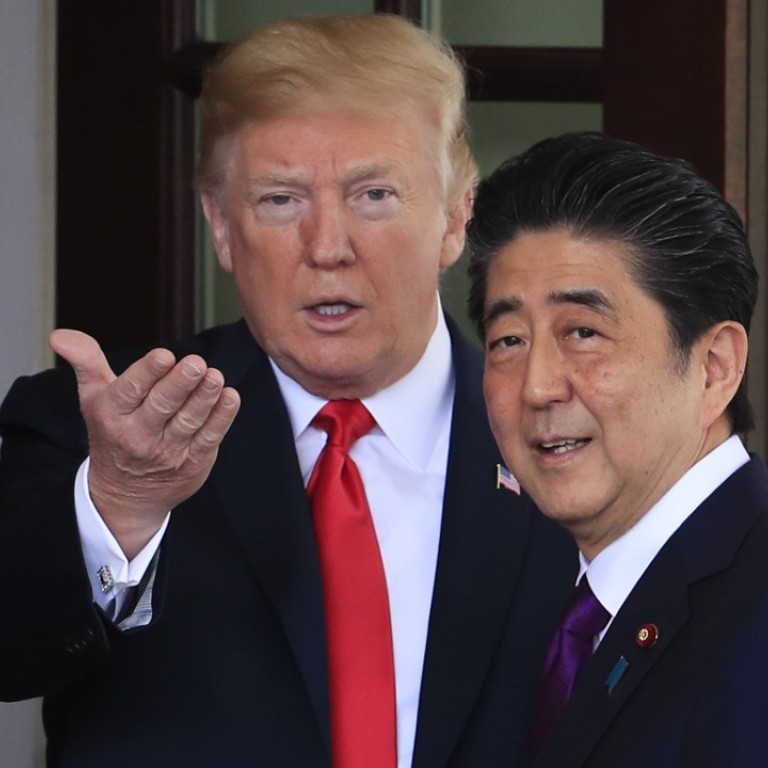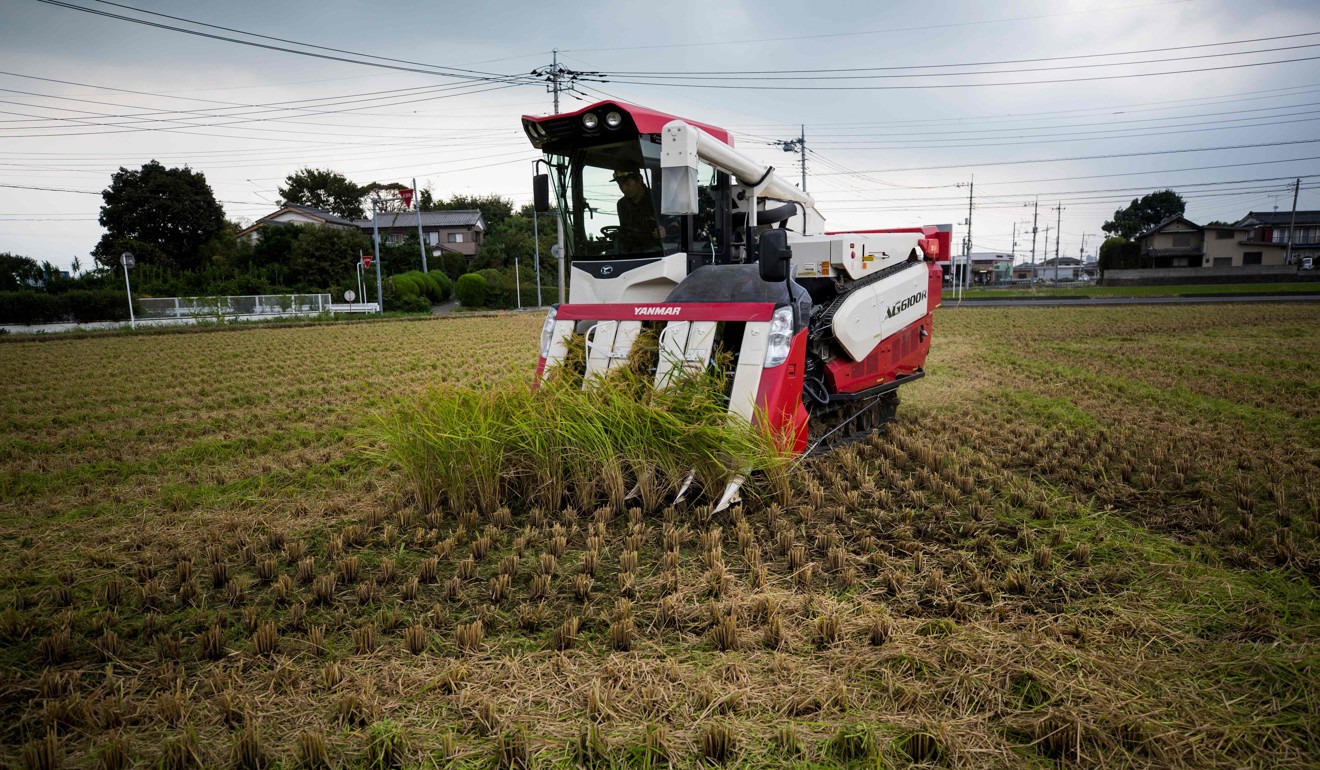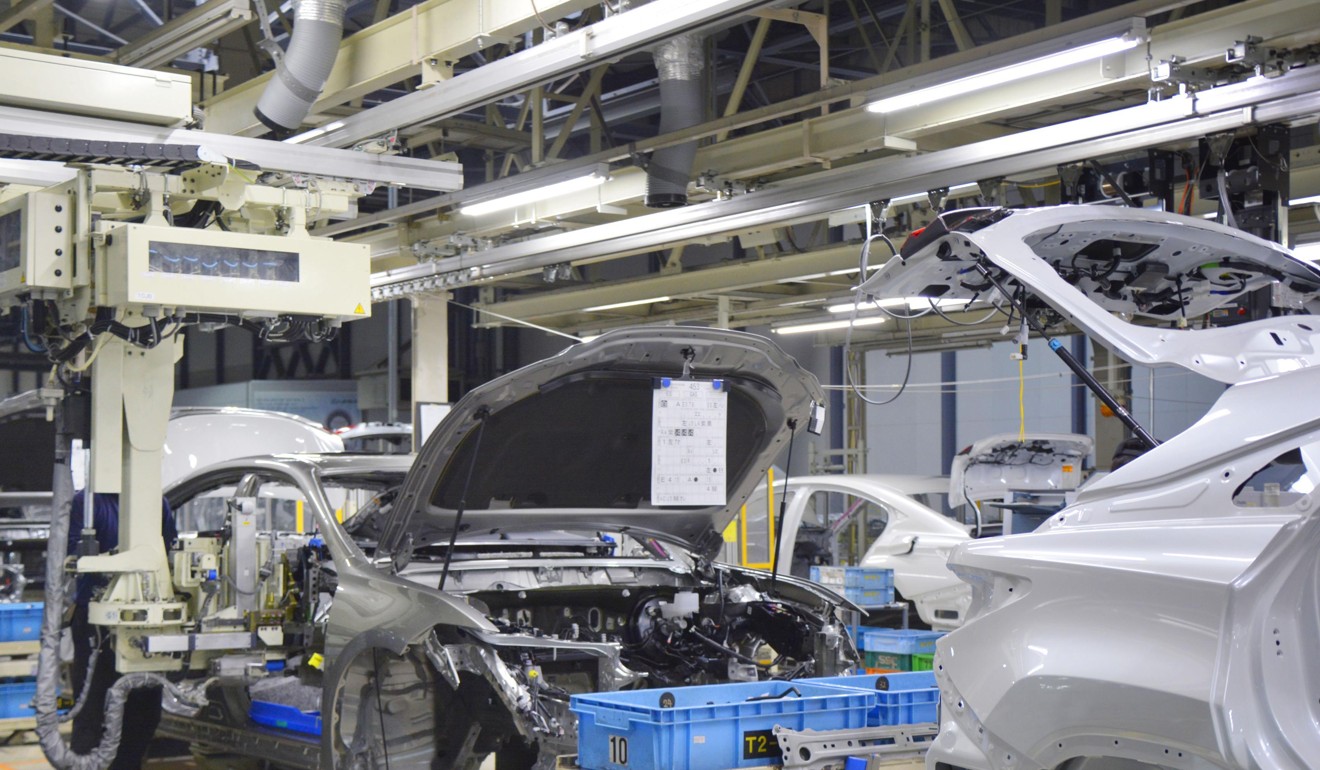
Spurned in midterms, Trump turns sights on Japanese car firms
- Move follows concerns president would respond to loses by becoming more erratic towards Asia
- Comments raise spectre of 25 per cent tariff on imports of Japanese vehicles
- US market is critical to Japanese carmakers – but president says American manufacturers are not getting same access in Japan
Speaking at a press conference in Washington on Wednesday just hours after the Republican Party lost control of the House of Representatives to the Democrats, Trump trained his sights on Japanese car firms, complaining that while Japan benefited from low tariffs on imports into the US, Japan would not grant US-built vehicles similar access to its domestic market.
US midterms result: good for Democrats, bad for Asia, says Trump critic
Trump told the press conference that Japanese Prime Minister Shinzo Abe was “one of the people I’m closest with,” but added a caveat, “I tell him all the time that Japan does not treat the United States fairly on trade.
“They send in millions of cars at a very low tax ... They don’t take our cars.”

Japan and the US are expected to open negotiations on a bilateral trade agreement in the early part of next year, with the Trump administration expected to push hard for increased market access for vehicles and the agriculture sector.
The president has previously suggested he is prepared to impose a 25 per cent tariff on imports of Japanese cars, which would cripple manufacturers.
The president’s comments will have sent shivers down the spines of the Japanese government and car manufacturers, said Martin Schulz, senior economist for the Fujitsu Research Institute in Tokyo.
“This is the one weapon on the US side that can have a major effect on the thinking of the Japanese government and industry,” he told the South China Morning Post. “And Trump will use this.”
This is the one weapon on the US side that can have a major effect on the thinking of the Japanese government
Japan has been pushing for the Trans-Pacific Partnership free trade agreement since Trump withdrew from the multilateral pact early in his presidency, but after forcing Mexico and Canada to renegotiate the terms of the North American Free Trade Agreement to favour US businesses, Trump is now setting his sights on Tokyo.
Both sides know that the US market is critical to Japanese carmakers. While companies such as Toyota and Honda have been building construction plants in the US to avoid import taxes, around 50 per cent of all Japanese vehicles are still imported into the US.
And while Trump may bemoan the fact that US vehicles are rarely seen on Japanese roads, Schulz points out that is primarily a result of consumers’ preferences in a nation where large vehicles are inconvenient because the roads are narrow and parking space is extremely limited.

Given the importance of the auto sector to the overall economy, Tokyo had little choice but to stand its ground in the upcoming talks with the US, said Yukio Okamoto, a former diplomat and now managing director of the Pacifica Fund, at a seminar shortly before the midterm elections.
A deal on tariffs won’t end the US-China economic cold war
But the problem will escalate significantly should the president link trade with the security guarantees that have bound the two nations for the last 73 years.
“So far, we have been able to gain the understanding of the US by persuading them that the Japan-US security relationship equally benefits Japan and the US,” he said. “It’s the same thing to a similar degree about trade, that we are bringing benefits to American manufacturers and assemblers and that we are trying hard to shift our plants to the US, provide direct investment and so forth.
“These qualitative explanations have previously made America sympathetic, to a certain extent,” he said. “But not Trump. In the upcoming trade talks, we have to be quite vigilant.”

